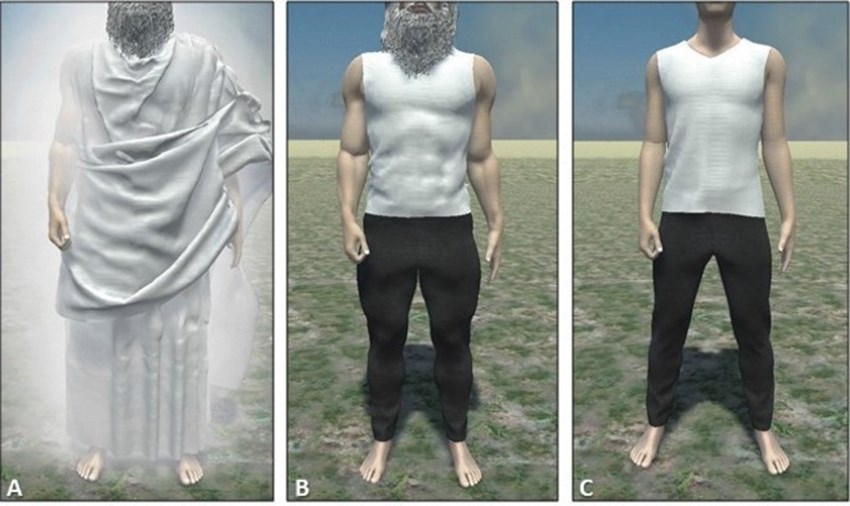No âmbito do projeto 258/20 - In God's shoes: embodying the avatar of the supreme moral authority modulates psychophysiological indices of one's own morality, apoiado pela Fundação BIAL, Salvatore Aglioti e colaboradores recrutaram um grupo de 54 voluntários em que cada um, recorrendo à realidade virtual, incorporava três avatares diferentes: um normal, um musculado e um omnipresente (uma representação antropomórfica do Deus cristão). Ao incorporar o avatar omnipotente, os participantes percecionaram os eventos adversos como menos ameaçadores e consideraram que tinham capacidades físicas superiores, mesmo quando comparados com o avatar musculado. Os autores concluíram que o avatar de Deus pode influenciar a perceção das pessoas acerca dos seus próprios limites e capacidades. Mais informação disponível no artigo Embodying the avatar of an omnipotent agent modulates the perception of one’s own abilities and enhances feelings of invulnerability, publicado na revista científica Scientific Reports.
Abstract
Immersive virtual reality can give people the illusion of owning artificial bodies (i.e., avatars) and controlling their actions. Tellingly, people appear to adhere to the newly embodied entities not just on the basis of physical traits but also behaving accordingly with the hallmarks of the represented characters. In two studies we pushed the limits of this process by testing if one’s own sense of power could be affected by embodying the anthropomorphic representation of the Christian God, that is considered an omnipotent entity. A human Muscled and a Normotype avatar were used as controls. Results showed that participants embodying the God-avatar: (i) reacted to a threatening event compromising their physical safety by exhibiting a lower skin conductance response and heart rate deceleration compared to the Normotype-control avatar (Study 1); (ii) estimated they had more physical abilities compared to both the Normotype-control and the Muscled-control avatars (Study 2). Taken together, our findings suggest that embodying an omnipotent agent may exert an influence on people’s perception of their own limits and capabilities, nourishing feelings of physical invulnerability and strength. Our study indicates that effectively embodying virtual role models may boost achievements and have translational implications in the field of empowerment.





























































































